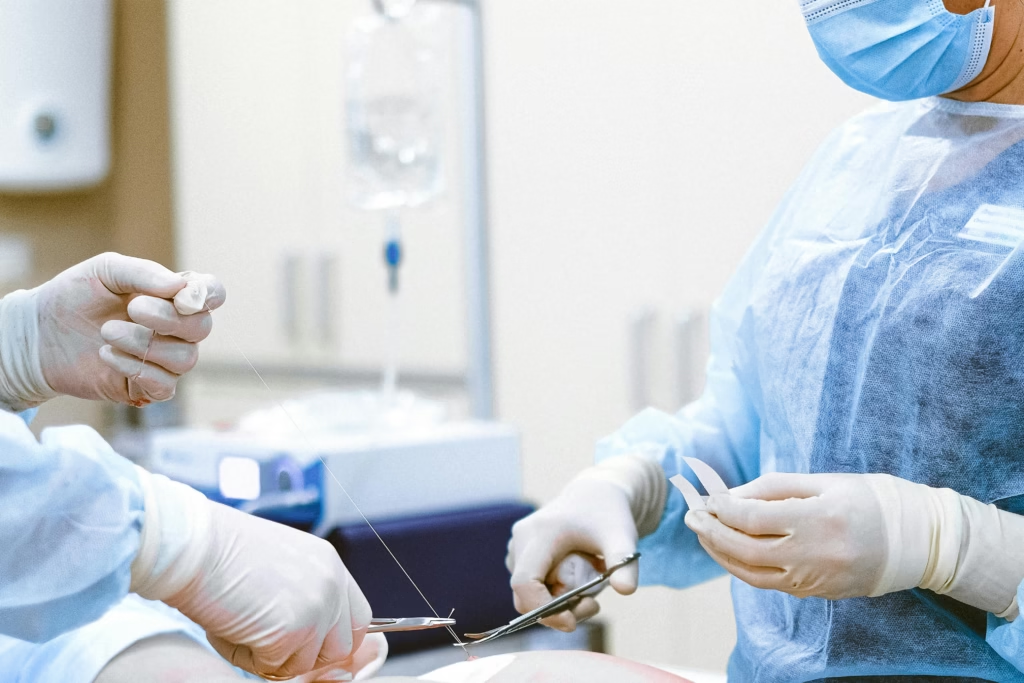Struggling to conceive can feel overwhelming—both emotionally and physically. Many couples today face challenges in getting pregnant, and while medications, lifestyle changes, or assisted reproductive techniques like IVF help in some cases, surgery may sometimes be needed.
This is where fertility enhancing surgery comes in. These are procedures designed to correct physical problems in the reproductive system, thereby improving your chances of natural conception.

What is Fertility Enhancing Surgery?
Fertility enhancing surgery refers to a group of surgical procedures that treat structural or anatomical problems in a woman’s reproductive organs. Unlike IVF or other fertility treatments that work outside the body, these surgeries aim to restore normal function of the uterus, ovaries, or fallopian tubes, making it easier to conceive naturally.
Why Might Someone Need Fertility Enhancing Surgery?
You may be advised to undergo fertility surgery if there are:
- Blocked or damaged fallopian tubes – prevents the egg and sperm from meeting.
- Fibroids or uterine polyps – noncancerous growths that interfere with implantation.
- Endometriosis – when uterine tissue grows outside the uterus and causes scarring.
- Ovarian cysts – large cysts can affect ovulation.
- Scar tissue or adhesions – from previous infections or surgeries.
- PCOS (Polycystic Ovary Syndrome) – if medicines don’t work, surgery can help regulate ovulation.
Common Types of Fertility Enhancing Surgeries
- Laparoscopy
- A minimally invasive “keyhole” surgery.
- Used to treat endometriosis, ovarian cysts, pelvic adhesions, and to check if fallopian tubes are open.
- Hysteroscopy
- A thin camera is inserted through the cervix into the uterus.
- Helps remove fibroids, polyps, or scar tissue that may be preventing pregnancy.
- Tuboplasty
- Surgery to repair or reopen blocked fallopian tubes.
- Myomectomy
- Removal of fibroids that are distorting the uterus and interfering with conception.
- Ovarian Drilling
- Done in select PCOS patients who do not respond to medicines.
- Small punctures are made on the ovaries to restore regular ovulation.
How Do These Surgeries Help?
- Restore normal anatomy of reproductive organs.
- Improve egg release and fertilization.
- Increase chances of natural pregnancy.
- In some cases, enhance the success of IVF or other assisted fertility treatments.
Risks and Limitations
Like any surgery, fertility enhancing procedures also carry some risks such as infection, bleeding, or new scar tissue formation. It’s also important to understand that:
- Surgery may not guarantee pregnancy.
- Effectiveness depends on your age, health, and the underlying cause of infertility.
- Sometimes, IVF may still be required after surgery.
Recovery and What to Expect
Most fertility surgeries today are done using minimally invasive techniques like laparoscopy or hysteroscopy, which means:
- Smaller cuts
- Less pain
- Faster recovery (usually a few days to a couple of weeks)
After surgery, your doctor may advise:
- Adequate rest and follow-up checkups.
- Eating a balanced, nutritious diet.
- Avoiding strenuous activities until cleared by your doctor.
When Should You Ask Your Doctor About It?
You should consult a gynecologist or fertility specialist if:
- You’ve been trying to conceive for more than 12 months (or 6 months if you’re above 35).
- You’ve been diagnosed with conditions like fibroids, endometriosis, or blocked tubes.
- You’ve had multiple failed IVF cycles without a clear explanation.
Fertility enhancing surgery can be a valuable option for couples struggling with infertility due to physical or structural issues. With advancements in minimally invasive techniques, these surgeries are safer and offer quicker recovery.
If you and your partner are facing difficulties in conceiving, it’s important to seek timely medical guidance. The right evaluation and treatment plan, tailored to your individual needs, can significantly improve your chances of achieving pregnancy.
Remember—you are not alone on this journey. With the right care and support, parenthood can be within reach.
👩⚕️ Written by
Dr. Mamta Pattnayak
Additional Director – Obstetrics & Gynecology
Fortis Memorial Research Institute, Gurgaon

Dr. Mamta Pattnayak is working as a Additional Director in Gynae and Obstetrics Dept. in Fortis Hospital, Gurgaon. Dr. Mamta Pattnayak is an MBBS graduate from S.C.B. Medical College, Cuttack and completed her MD (Obstetrics & Gynaecology) from Sambalpur University in 2003. With a rich experience of over years to her credit, Dr. Mamta has undergone training on advance lap Gynae by Ethicon. Done hand’s on Colposcopy course by RCOG. She is certified as a mentor in RCOG training course in Max Hospital Saket. Dr. Mamta has been associated with several organizations like Moolchand Hospital, New Delhi besides others. Her last assignment was at Max Super Specialty Hospital, Saket, New Delhi. Recently she has also started her private clinic at: Mother’s Touch HealthCare Centre: 395P, Sector 39 Rd, opposite to Medanta Hospital, near Gurudwara, Sector 39, Gurugram, Haryana 122004


